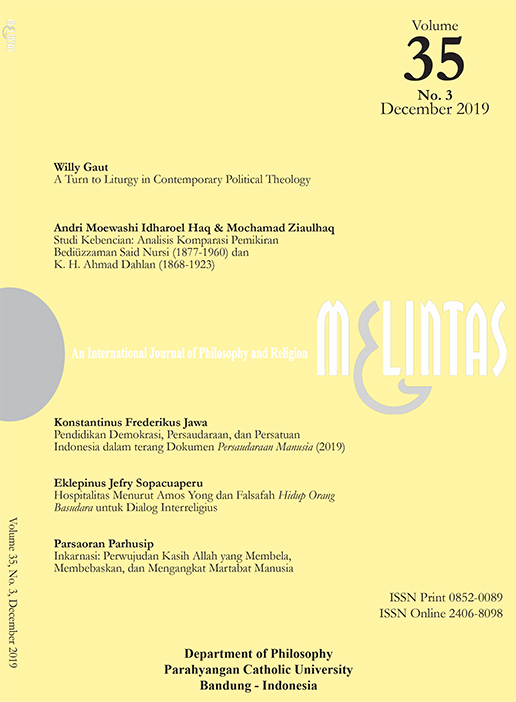Studi Kebencian: Analisis Komparasi Pemikiran Bediüzzaman Said Nursi (1877-1960) dan K. H. Ahmad Dahlan (1868-1923)
DOI:
https://doi.org/10.26593/mel.v35i3.4660.258-278Keywords:
hatred, nonviolence, Islam, religious movements, peace buildingAbstract
This qualitative research explores the theme of hatred, which has become a new interdisciplinary field called hate studies and which still requires academic contributions from different disciplines. The author uses the perspective of religious studies as well as peace and conflict studies, in which the phenomenon of hatred is examined in a descriptive-comparative way from two Islamic movement figures, namely Bediüzzaman Said Nursi (1877-1960) in Turkey and K. H. Ahmad Dahlan (1686-1923) in Indonesia. Comparison of thoughts and movements of these two Islamic figures is significant within the framework of ‘Muhammadiyah’. Muhammadiyah is part of the nation’s strength that has been actively involved in national political movement and in the nation-building process through “Amar Ma'ruf Nahi Munkar” preaching since 1912 in Indonesia. Ahmad Dahlan's progressive thoughts were confronted with hate incidents from religious and community leaders because they were considered contradictory to the Islamic tradition and religion. This article compares the thoughts of Said Nursi and Ahmad Dahlan in how hatred was transformed into nonviolent practices. It shows a different perspective in criticising as well as complementing various nonviolent ways and peacebuilding movements today. This perspective offers contribution to the Islamic movements and the Muhammadiyah in responding to the challenges of plurality, nonviolence, and peace in Indonesia.Downloads
Published
2021-03-04
Issue
Section
Articles
License
MELINTAS applies the Creative Commons Attribution (CC BY NC) license to articles and other works we publish. If you submit your paper for publication by MELINTAS, you agree to have the CC BY NC license applied to your work.


